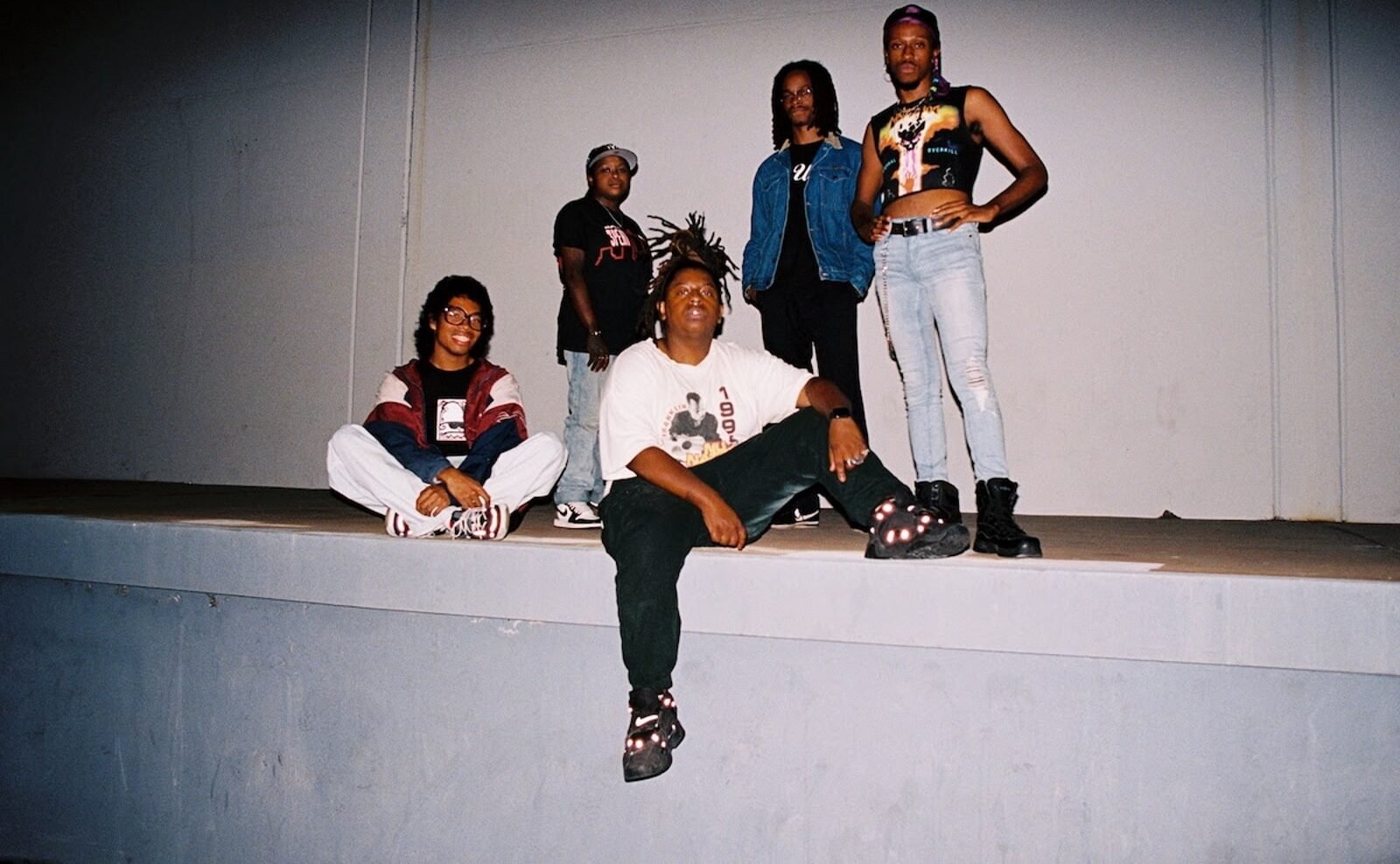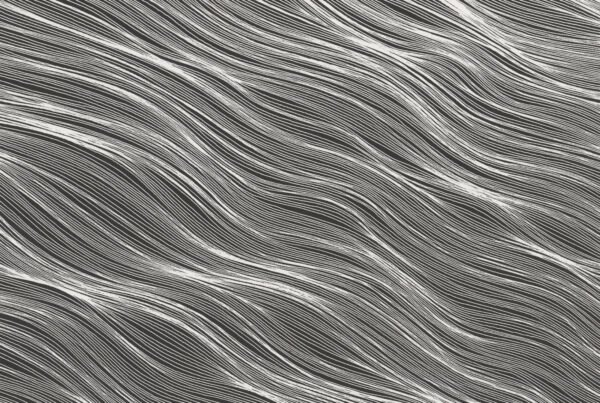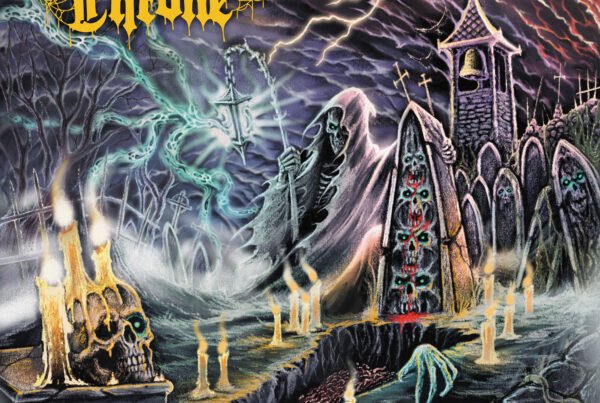A New Tomorrow shows Zulu as profoundly capable musicians, unapologetically Black, warm souls, and purveyors of a kinder future if they have their way. Are you down?
Release date: March 3, 2023 | Flatspot Records | Instagram | Twitter | Stream/Purchase
‘Discourse around Blackness in America often orbits around Black pain.
Our suffering is the sun of conversations time after time after time again.
But I grow weary of repeating our plight while never highlighting the beauty of us.
So often forgotten in conversation is our perseverance and triumph.
The power we possess from the tightest curl on the top of our head to the toes that walk earth’s bed.
‘Why must I only share our struggle when our Blackness is so much more?
We’re favored by the sun from the moment we’re created with skin soft and sweet like a serenade.
We could be as pale as marshmallows, or as rich as basaltic rock of Nyiragongo
There’s ginen embedded in our skeletons
‘Why must I only retell our pain when strength is the blue of our veins?
Potential comes natural to us, it’s the oxygen coursing through our blood streams
Our hearts built from titanium, and our souls further precious than platinum
Our chords produce notes no other bird can sing
‘Why is Black discourse always about precipitation while ignoring the sweet scent of petrichor after rain?‘
I wanted to transcribe the entire poem read in “Créme de Cassis By Alesia Miller & Precious Tucker”, because I think it’s one of the most important statements Zulu have made with their music so far, and wonderfully sets up the crux of the subject at hand today. Backed by a pretty piano melody that twinkles along with the impassioned vocal performance, it’s not what you’d expect from a band whose Instagram username is the very clever and descriptive @blackpowerviolence. We love a good double entendre in this motherfucker.
In my review of the stellar Regulate album last year, I said ‘these days, the most radical thing you can do for yourself, others, and the world, is care‘ and ‘the future of hardcore will have an abundance of one thing: compassion.‘ A New Tomorrow is the natural continuation of that, utilizing the punctuating power of hardcore and heavy music to instill a fighting spirit and loving soul into the world while not overinvesting in that sound for better or worse.
One thing you have to understand going into this album is that Zulu are more than they appear, representing the artistic reality of not only themselves as music enjoyers, but of Black artists as a whole. It’s not all rap and r&b (though those are present on A New Tomorrow), and for much too long has that been the assumption among the ignorant even as they branch earnestly and greatly into other fields… you know, like metal and hardcore. You can read vocalist Anaiah Lei’s expanded take on this and the scene’s racist gatekeeping in this awesome Kerrang! interview.
Across 15 tracks that don’t even total to a full half-hour, Zulu‘s on a warpath sonically, but envision remarkable ideals of self-expression, unity, community, and rising up to a better day lyrically. It’s a juxtaposition, not a contradiction. From the downtrodden yet wishful “Lyfe Az A Shorty Shun B So Ruff” (which is a reference to Inspectah Deck’s verse on the legendary “C.R.E.A.M.” by Wu-Tang Clan) to the uplifting “Who Jah Bless, No One Curse”, Zulu got love for nearly everyone including themselves. Even interludes like “Shine Eternally” wordlessly communicate with gilded, washy, caressing guitars and a pace that demands rest – their way of reminding us to care for ourselves and to not get lost in the aggression.
“Where I’m From” is unequivocally their staple song on here. With the help of SOUL GLO‘s Pierce Jordan and Playytime‘s Obioma Ugonna, and an amazingly cameo-packed (Eric André?!) music video homage to A Tribe Called Quest‘s “Scenario” (embedded above – Zulu‘s song, not ATCQ), this track is punchy as fuck. The riffs are brolic, but know when to sit back and let the lyrics do the talking. Lei along with vocal assistance from drummer Christine Cadette lay the foundation with curdling growls and lyrics that take aim at those who aim to exclude Zulu and those who look like them because they don’t fit the white narrative of hardcore or heavy music:
‘We can’t even be
Who we want to be
Check it, it’s been exclusion from the jump
And that’s a fact
Ya bumbaclat
Fiya bun fi dat
Yo, I can’t shake it
You really believe
But in this big white cloud
I can hardly breathe
You wouldn’t be here if wasn’t for us
And this one thing
One thing
You can trust‘We’ve been here
We ain’t going nowhere‘
“We’re More Than This” is very deserving of a mention, as it represents the diversity and quality Zulu bring. Guitarist Dez Yusuf raps confidently over the band’s loungy jazz stylings, which may seem like some sort of gimmick, but Zulu are real as fuck and the dude can rap. The second verse in particular is a great example of flow and complicated rhyme schemes that sound great and don’t fall into the ‘lyrical miracle’ camp whatsoever. I would not be surprised in the slightest if he had a side-project as a performing rapper.
‘I set fire to every box coffin
And pattern of thought they lost in
Never knowing the cost of being accosted
Whether or not I profit: A prophet
I got a rocket to leave a hole in their conscience
I’m dark and Black as they come
But a Ni**a is far from gothic
A rocker a prophet
The calmest obnoxious but honest
I promise I got this we got this
Cant stop it so stop it‘
I’ve seen some criticism pop up against A New Tomorrow, even within our own team who have discussed this album, that it comes off disjointed and lacks cohesion. On the surface, I can understand that. It’ll also put off the type of hardcore fan that Zulu probably don’t want as fans anyway. For me, it complements the variety that they try to get across with their themes and lyrics. So often, Black people are pressured, or straight up forced, to occupy certain boxes to survive, get by, or get ahead. Like I went into before, you hear of Black artists and some may assume they’re rappers, a jazz band, or into soul.
None can be true, or all can be true. Zulu chose all, to embody the unique cultural aspects of the Black experience, which is wide and varied, as it pertains to not only mood and tone of their music (please reference the poem at the beginning or the “Must I Only Share My Pain” interlude if you forgot), but to sound and execution. This is also why you hear prominent samples of Curtis Mayfield and Nina Simone – there’s a sense of community you can’t fake or replace (listen to “Fakin’ Tha Funk (You Get Did)” if you wanna know how that turns out).
For as freeing as righteous anger can be – and for how much it can fuel healthy, positive change – it’s even more important to move past that initial rage and into camaraderie, a togetherness that unites people and pushes forward into that change. That to me is what A New Tomorrow represents. It’s the love, hope, and togetherness after the anger; the calm, cool, collected direct action that topples pain, objectification, and suffering. Zulu are very upfront that change has happened, is happening, and will continue to happen. As they blaze a trail doing exactly what they want, you can choose where you want to fall relative to them. I emphatically choose to hop on that train insofar as I’m allowed to.
But don’t take my word for it – check out Laina Dawes‘ take on this and discussion with Lei over at NPR.
Band photo by Nick Santana






